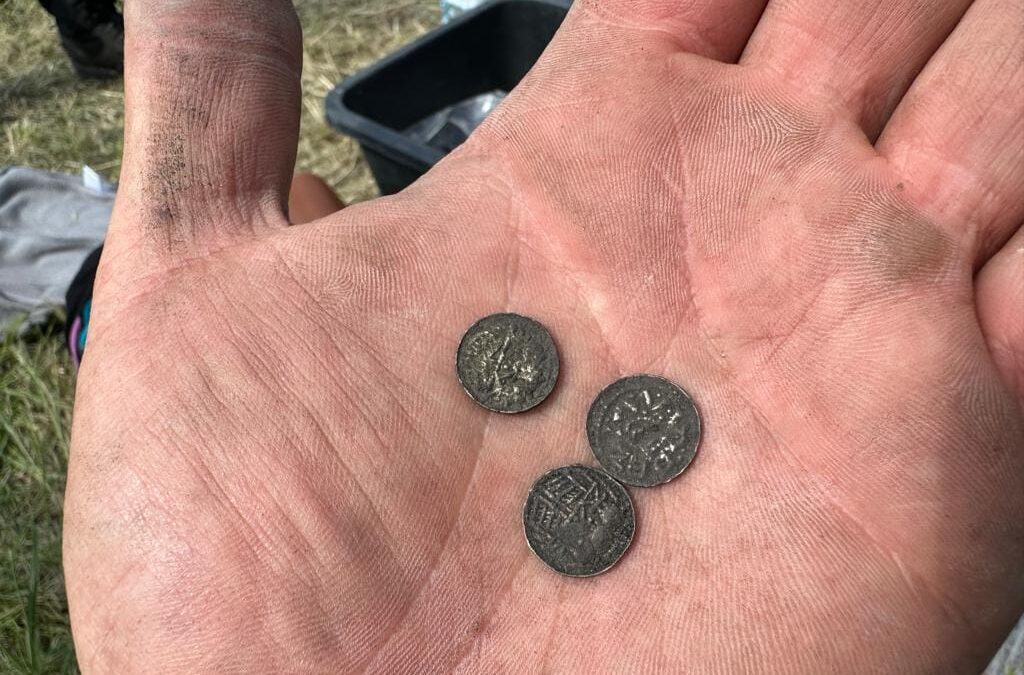Archaeologists excavating the site of a medieval fortress in the town of Wiślica in southern Poland have uncovered a collection of coins believed to be almost 1,000 years old.
When work finished two days ago, the team revealed that they have discovered 12 silver coins. Eleven are from the period of Bolesław the Bold – who was first duke and then king of Poland between 1058 and 1079 – and one likely to be from the time of Władysław Herman, who was duke of Poland in 1079-1102.
The find follows the previous discovery of over 500 coins from the same period that were found at the same site in the 1960s and 1970s.
“We are expanding the ‘Wiślica trove’ with new treasures,” Michał Gliński, the archeologist in charge of the work, told local news outlet Echo Dnia.
During the excavation, the team also revealed that they had uncovered a Roman fibula – a type of pin for fastening garments – estimated to be from the 2nd century.
Gliński admitted, however, that the discovery of the fibula “does not significantly affect the now recognised history of the site” and “we can only speculate on how it ended up here.”
The archaeological work was being carried out as part of a revitalisation programme. Gliński and his team were tasked with re-examining the site for any artefacts that may not have been uncovered in the 1960s and 1970s.
Gliński expressed thanks to the Świętokrzyska Exploration Group, a society of amateur metal-detecting enthusiasts who assisted the archaeologists during their work.
“In the 1970s, when the previous work was completed, there were no such technological resources available, especially when it came to metal detectors,” he said.
Further 9th century Frankish coins have been unearthed in Poland, bringing the total to 131 at a site found by detectorists
Questions remain over how they got there. One theory is they were part of a ransom paid to Vikings to end the Siege of Paris in 845 https://t.co/KVhl64S9Zs
— Notes from Poland 🇵🇱 (@notesfrompoland) August 27, 2021
Jacek Gocyk, chairman of Wiślica Town Council, confirmed to Echo Dnia that the newly discovered coins and the fibula will be added to the collections of the town’s museum.
Wiślica is one of the oldest settlements in Poland, with its origins dating back to before the creation of the Polish state in the 10th century. It originally received town status from King Władysław Łokietek in the 14th century, but this was revoked in 1869.
In 2018, Wiślica, which is home to around 500 people, was again recognised as a town, becoming the smallest in Poland. However, a year later it lost that title to Opatowiec – home to 336 inhabitants – when the latter was also awarded town status.

Notes from Poland is run by a small editorial team and published by an independent, non-profit foundation that is funded through donations from our readers. We cannot do what we do without your support.
Main image credit: Świętokrzyska Grupa Eksploracyjna/Facebook

Anna Hackett is an assistant editor at Notes from Poland. She is a recent graduate of European Studies from Trinity College Dublin and has had previous journalistic experience with the Irish Independent News & Media group.



















